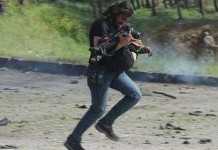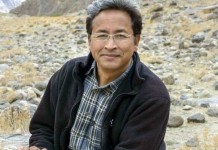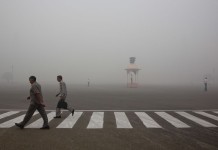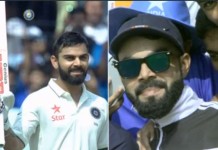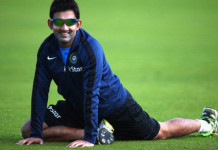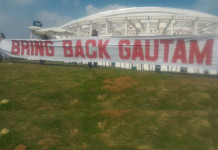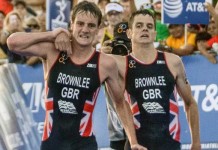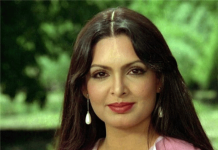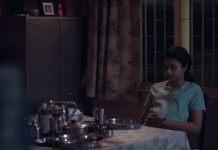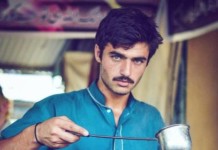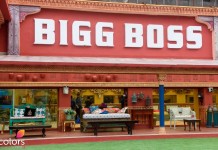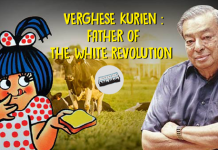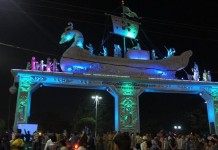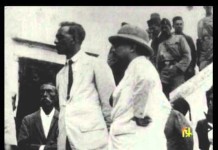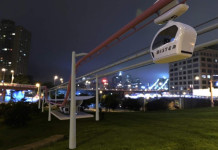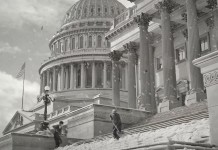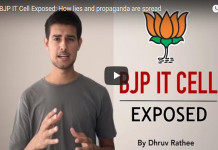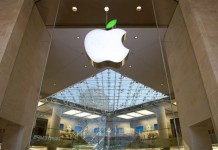Prime Minister Narendra Modi and his Pakistani counterpart Nawaz Sharif met on the sidelines of the UN Climate Change summit in Paris. The Indian foreign ministry confirmed the unofficial meeting between the heads of two nuclear powered nations after a span of rising tensions over a number of issues.
Asked about the meeting, Sharif refused to divulge the details except saying that the meeting was held in cordial atmosphere and both leaders agreed the two neighbours should have more dialogues. They had met in a similar situation on the sidelines of the Saarc summit in Kathmandu a year ago, and had agreed that they needed more time and greater political space to move forward with public engagements.
A report on Hindustan Times claims the meeting was facilitated by Indian steel magnate Sajjan Jindal, brother of former Congress MP Naveen Jindal. The revelations were made by TV journalist Barkha Dutt in her book “This Unquiet Land — Stories from India’s Fault Lines”. The book will be available in the market on Wednesday.
As per the HT report, Barkha Dutt claimed in the book that both Modi and Sharif had found someone to “keep them connected even when things got difficult” and the man was Sajjan Jindal, an informal messenger serving as a “covert bridge” between the two.
When Sharif had come to Delhi to attend Modi’s swearing-in ceremony they had decided to keep the reins of the troubled relationship between the two nations in their hands. “However, they agreed that it could be useful to talk informally through a mutual acquaintance they both felt comfortable with.” The acquaintance was Jindal, who hosted a tea party for Sharif after his meeting with Modi in Delhi. When Dutt went to meet the Pakistani leader at the Capital’s Taj Mansingh hotel, she saw Jindal escort Sharif’s son Hussain for lunch.
“It was no secret that Indian steelmakers, both state and private players, were looking to foster friendly relations with Pakistan; they needed this to happen so they could ferry iron ore from Afghanistan by road across Pakistan from where it could be shipped to ports in western and southern India,” Dutt writes. But, Jindal’s ties with Sharif, she says, appeared to have gone beyond that of a businessman with the head of a government – and the two had become “confidantes”.
The proximity was at play in Kathmandu, where the Saarc summit was held on November 26 and 27. Modi called up Jindal from Nepal and asked him to take the earliest flight to the Nepali capital. “Jindal was asked to discreetly reach out to his ‘friend’ across the border,” writes Dutt. The two leaders then met quietly “in the privacy of Jindal’s hotel room”, where they spent an hour together.
Modi – hinting at the upcoming Jammu and Kashmir elections – indicated while he was keen, “circumstances” did not permit him to reopen formal channels. Sharif spoke about “constrictions” imposed on him by the security establishment and how his “negotiating power with the army had been gradually whittled away”.
“This under-the radar encounter paved the way for Modi to openly reach out to Sharif two months later through a phone call that was positioned as an innocuous good-luck call for the World Cup,” Dutt writes. Her account reinforces a well-known fact — domestic politics often determines the course of the fragile bilateral relationship.
Meanwhile, today’s meeting between the two prime ministers in Paris bears significance as there is an ever-increasing pressure from world leaders on Pakistan to act against terrorists operating from its soil. There is a marked shift in world’s approach to terrorism after the recent Paris attacks. While both leaders want peace between the two neighbours, it remains to be seen how much Sharif will succeed in persuading the military establishment, the real power centre in Pakistan.



